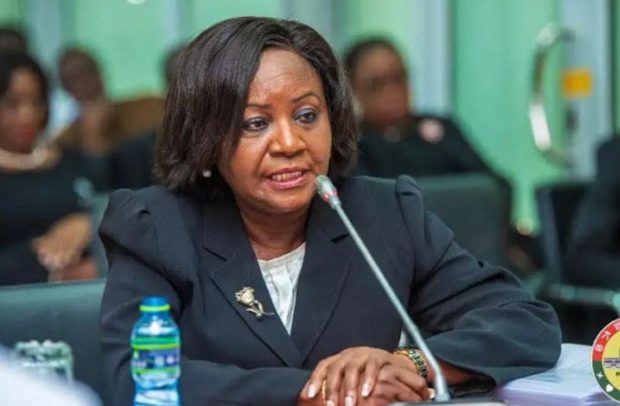Justice Barbara Frances Ackah-Yensu
A Supreme Court nominee, Justice Barbara Frances Ackah-Yensu, has dismissed suggestions that the government is packing the apex court to shift the balance in a particular direction.
The opposition National Democratic Congress (NDC) has been leading the charge, accusing the Akufo-Addo administration of deliberately increasing the number of justices in the Supreme Court in an attempt to change the ideological makeup of the court.
When Justice Barbara Ackah-Yensu, one of the four judges nominated by President Akufo-Addo for appointment to the Supreme Court, appeared before the Appointments Committee of Parliament yesterday, the NDC MP for Builsa North, James Agalga, brought the issue to the fore and quizzed the nominee on it.
“Do you think your approval will feed into that perception that this committee is aiding the packing of the court by the appointing authority for that same reason?” he asked the nominee.
Misconception
Justice Barbara replied, “With all due respect, I think that is a misconception. For a start, it is not a fact that there are going to be 18 members of the Supreme Court, should you graciously confirm my nomination.”
She added, “As a matter of practice, generally speaking, nominations to the Supreme Court are made when there are vacancies; when some of the Supreme Court judges are going on retirement.”
“And as we are speaking here, there are a number of them that have gone on retirement, thus creating vacancies and hence, my nomination. So I cannot agree with, all due respect, what you have just said about the Supreme Court being packed,” she continued.
She also said the workload at the apex court warrants the numbers, but pointed out, “For the longest time, it has been 15.”
“I think the issue of cases going to the Supreme Court, as of right, is one of the issues that should be taken to consideration in looking at the numbers in the Supreme Court,” the nominee suggested.
Judiciary Confidence
The Supreme Court nominee said there are challenges with the judiciary, though, the majority of Ghanaians still have confidence in the judiciary.
She noted that it is a fact that there is some dissatisfaction with the judiciary among the citizenry, and explained that some of it are “for good reason and others, probably not for good reason.”
“With the volume of cases that are placed before the court today, there are delays that people are not happy about,” she stated.
Justice Barbara, a Court of Appeal judge, said there have been some allegations about impropriety and corruption, which people are not happy about, but indicated, “As I have said earlier, I think that the majority of Ghanaians, in spite of all these, still have confidence in the judiciary.”
“The judiciary, being a human institution, is bound to have challenges with the human beings who work for the judiciary, and fortunately for us, we have provisions for addressing these challenges,” she said.
According to her, the constitution provides a procedure that if any member of the public, who has a problem with a judge, can petition the Chief Justice for redress.
“The Judiciary also has a complaint unit that deals with complaints about judges. The judiciary is regulating itself to deal with these human challenges,” she noted.
SC Jurisdiction
On jurisdiction, she said the Supreme Court of Ghana has a wide variety of jurisdictions that it exercises, and “that is one of the reasons the workload at the Supreme Court is as huge as it is.”
“In fact, Ghana is quite peculiar when it comes to the variety of jurisdictions exercised by the Supreme Court. Not even in the United States; not even in the United Kingdom; not in Canada; not in Australia; not even next door Nigeria.
“Do the Supreme Courts of these countries have as wide jurisdictions as we do? And Mr. Chairman, I dare to say that is one of the reasons we have the numbers that we do in the Supreme Court,” she asserted.
She explained that the variety of jurisdictions exercised by the apex court have resulted in a huge workload, and mentioned some as appeals from the National House of Chiefs, exclusive jurisdiction where there are challenges in presidential elections, jurisdiction for the production of official documents that may impact on security, and jurisdiction to award compensation.
“There are about nine jurisdictions exercised by the Supreme Court of Ghana,” she added.
By Ernest Kofi Adu

